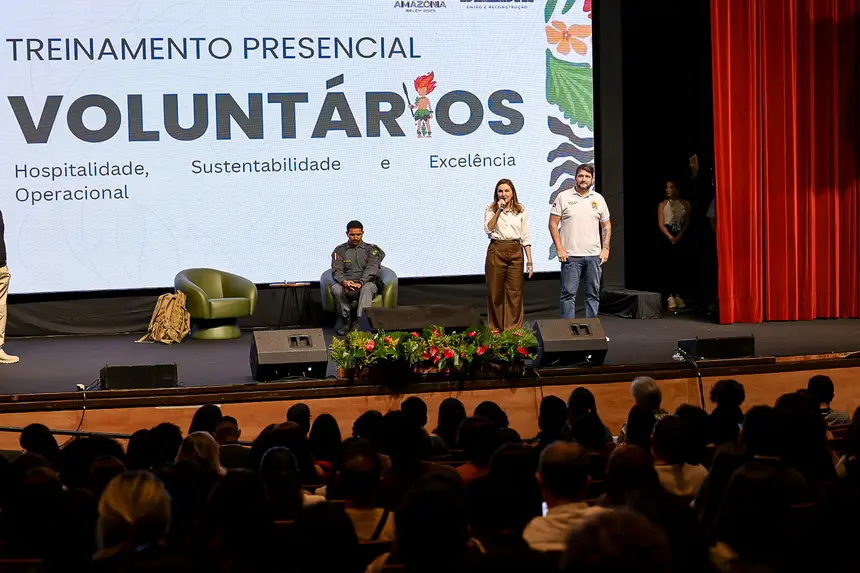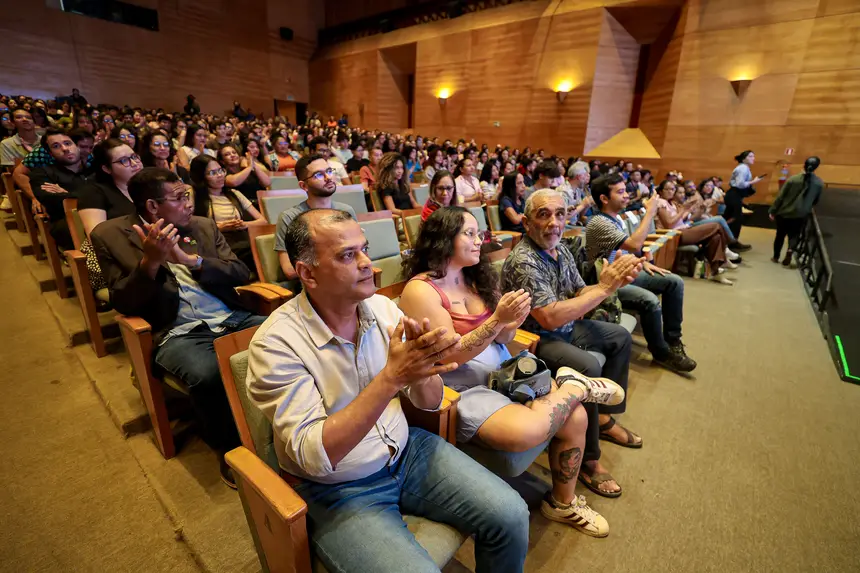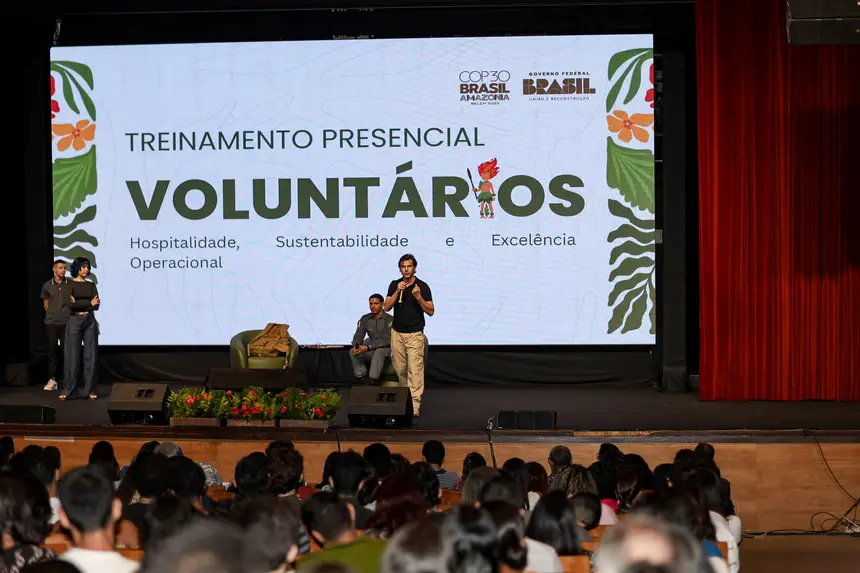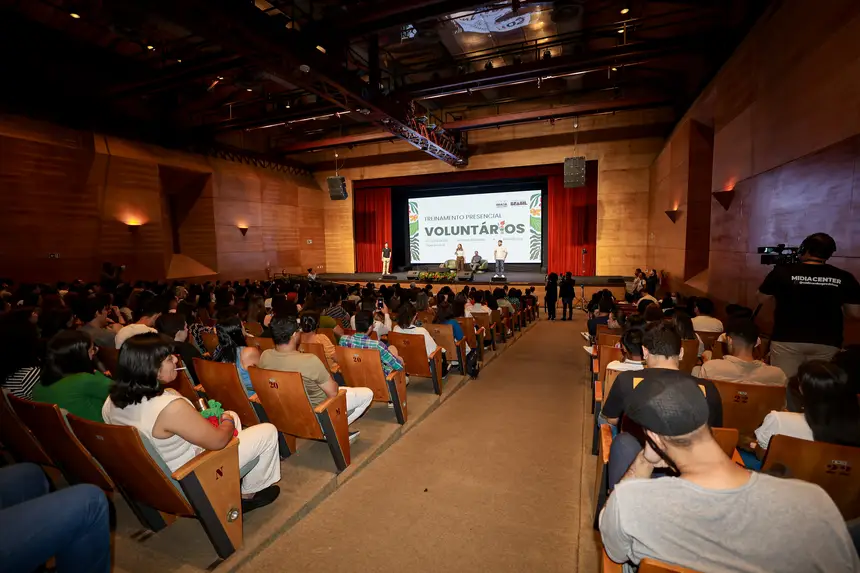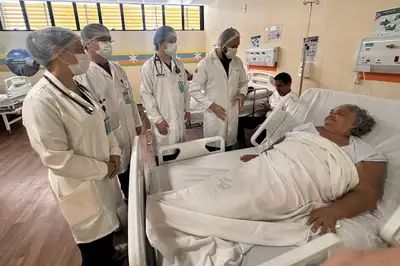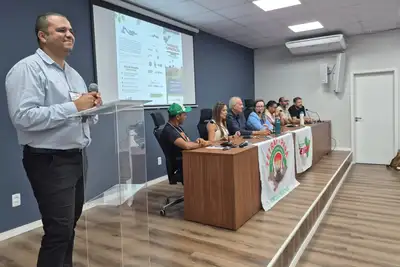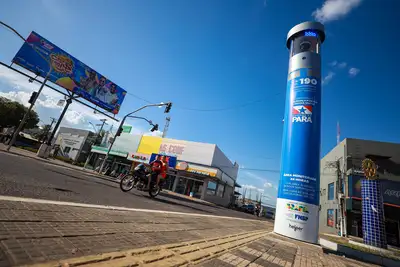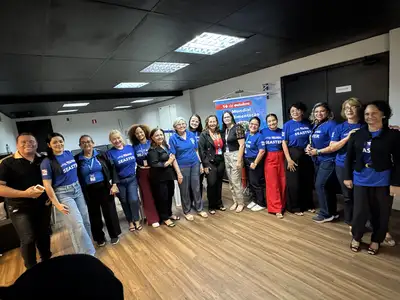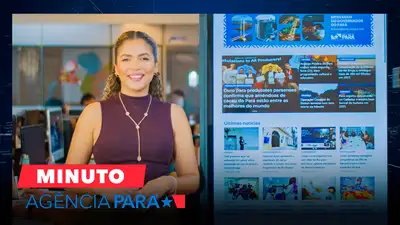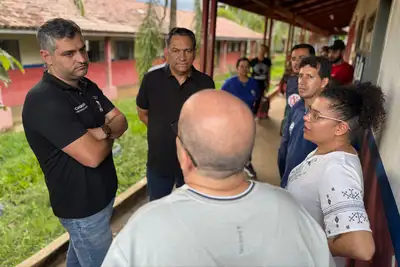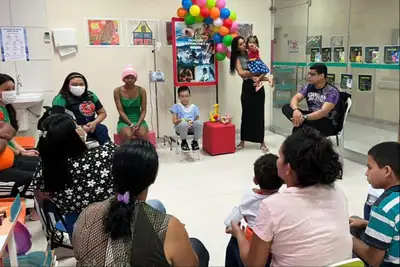Government of Pará begins in-person training for over 1,300 volunteers for COP30
Training prepares residents of Pará to welcome the world with hospitality, sustainability, and leadership during the global conference
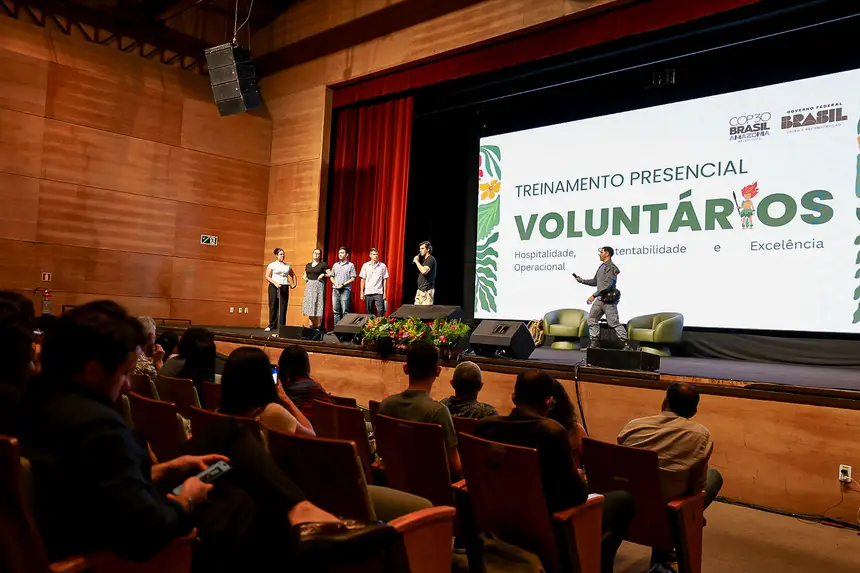
The Government of Pará, through the Secretary of Science, Technology and Higher, Professional and Technological Education (Sectet), in partnership with the Federal Government, began on Tuesday (28) the in-person training of volunteers who will work at the 30th United Nations Conference on Climate Change (COP30). The training will take place until October 30 at the Teatro Maria Sylvia Nunes, at Estação das Docas, in Belém, gathering more than 1,300 participants.
During the opening, the Vice Governor of Pará, Hana Ghassan, emphasized the transformative role of volunteering and the importance of popular participation in building a welcoming, sustainable, and representative COP30. “Volunteers are the soul of COP30. They will welcome the world with our Amazonian way of being: welcoming, supportive, and committed to the future of the planet. This training is an essential step to ensure that Pará shows all its capacity for organization and hospitality, and that each participant is proud to be part of this story,” she stated.
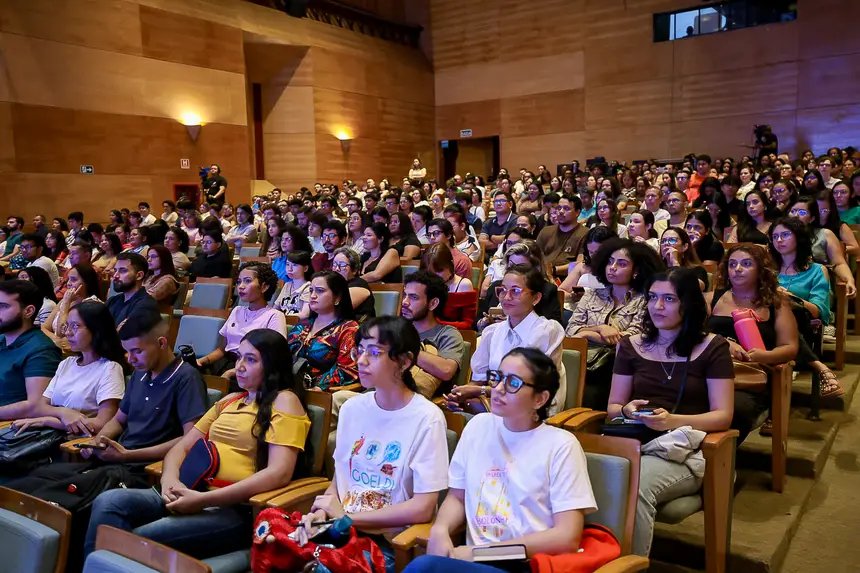
Volunteers advance after selection stages
The volunteers went through two preparation stages before the in-person phase: basic training courses and document analysis conducted by security agencies. They now proceed to the final training, which consolidates learning and prepares participants to act directly during the event.
The Deputy Secretary of Sectet, Keynes Silva, highlighted the impact of this stage. “With this training, we are delivering more than 1,300 volunteers prepared to work at COP30. It is an opportunity for qualification and human development, ensuring that each participant is capable of welcoming the international audience with competence, empathy, and appreciation of our Amazonian identity,” he said.
During the training, participants attend lectures and workshops on transportation, security, health, protocol, sustainability, and accessibility, combining theory and practice for real situations of reception, guidance, and logistical support.
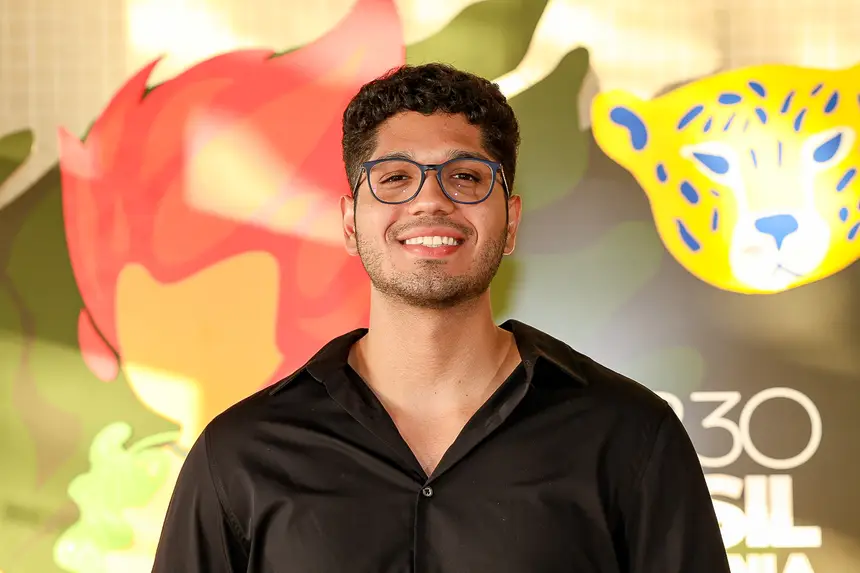
“The COP30 volunteer program has gone through a complete preparation trajectory. It started with basic training courses, went through document analysis, and now reaches the practical stage, with simulations of activities and services. Each phase was planned to develop technical and human skills, ensuring that volunteers are ready to welcome the public,” explained the program coordinator, Andrey Rabelo.
Experience and learning
The program represents an opportunity for learning, personal growth, and a concrete contribution to the environment and the good image of Pará before the world. Cláudia Girardi, a professor at the State University of Pará (Uepa) and one of the trained volunteers, highlighted the educational nature of the experience.
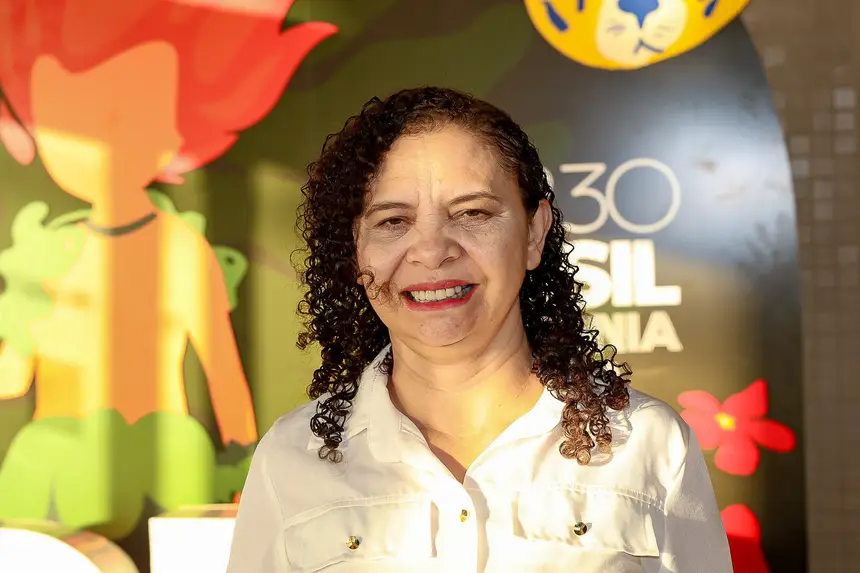
“Participating in the training stages has been very enriching. Volunteering has allowed me to learn more about sustainability and the role we can play in protecting the Amazon. It is a unique opportunity for personal growth and to contribute consciously to the environment,” she stated.
Volunteer Arthur Silva emphasized the professional impact of the initiative. “In addition to expanding my knowledge, it allows me to network, practice English, and learn from people in different fields. I am looking forward to working during COP30, welcoming the public and helping to ensure that each visitor's experience is positive,” he said.
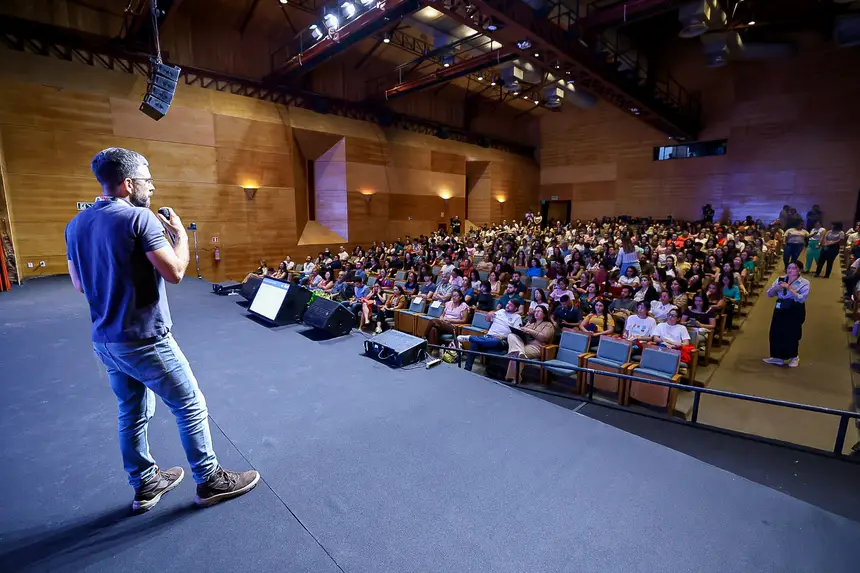
After the training, volunteers will be distributed across various fronts of action during the Conference, participating in reception, guidance, logistical support, and public service activities. The initiative reinforces the commitment of the Government of Pará to hold an inclusive, organized COP30 with strong leadership from the people of Pará.



